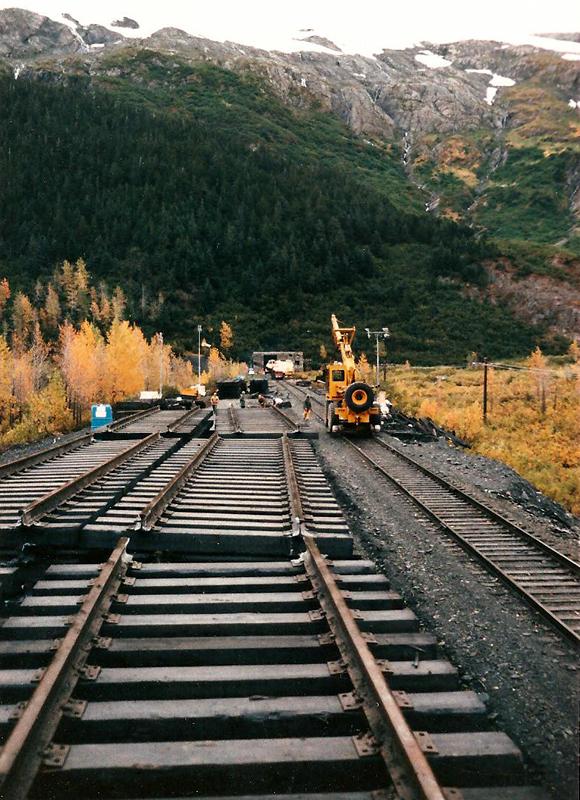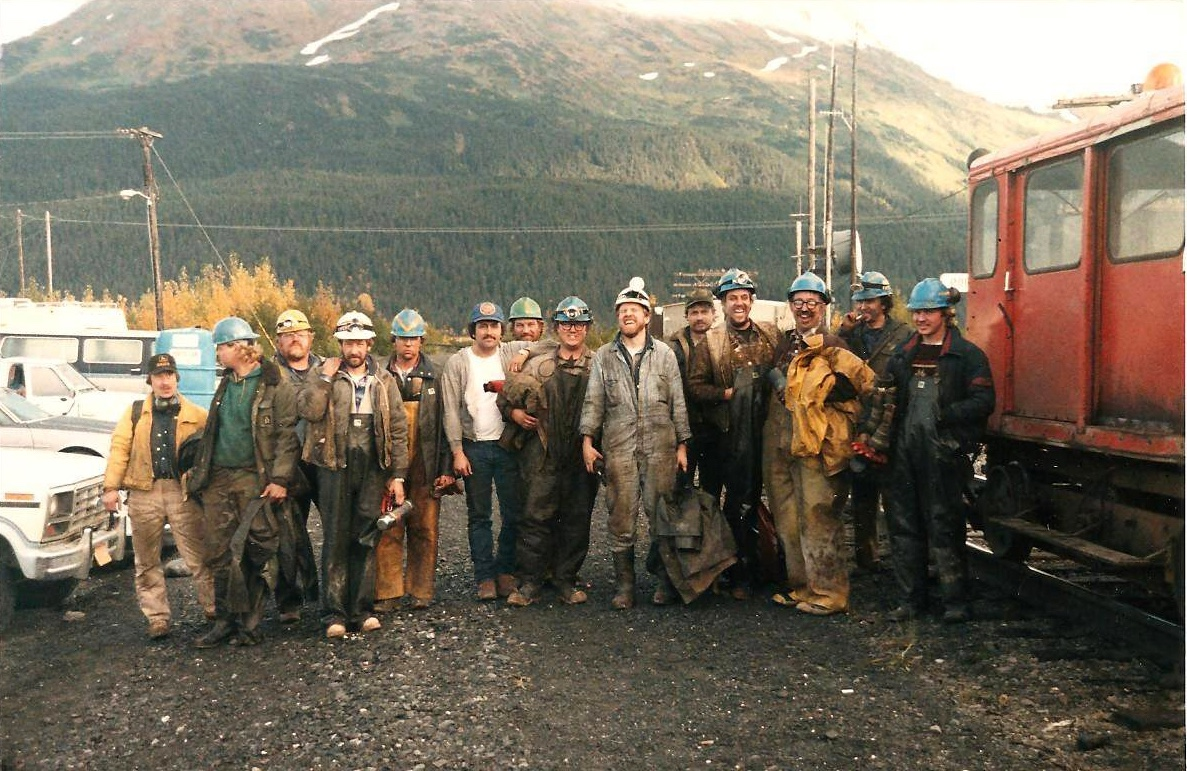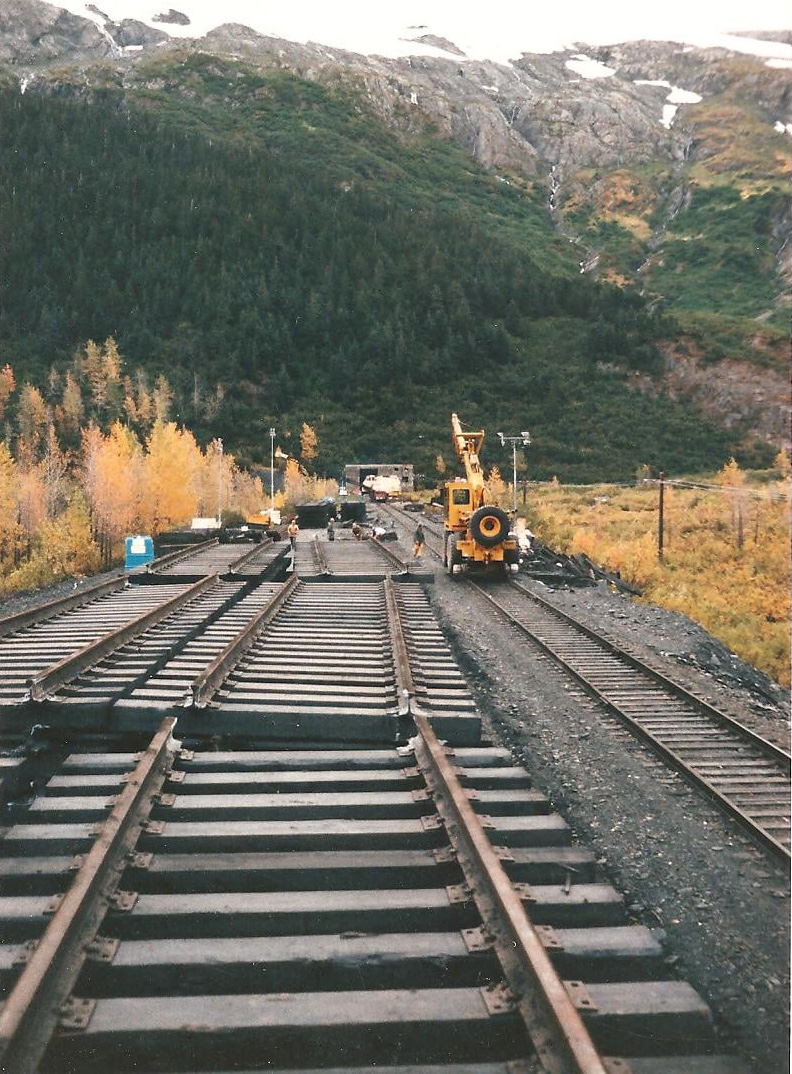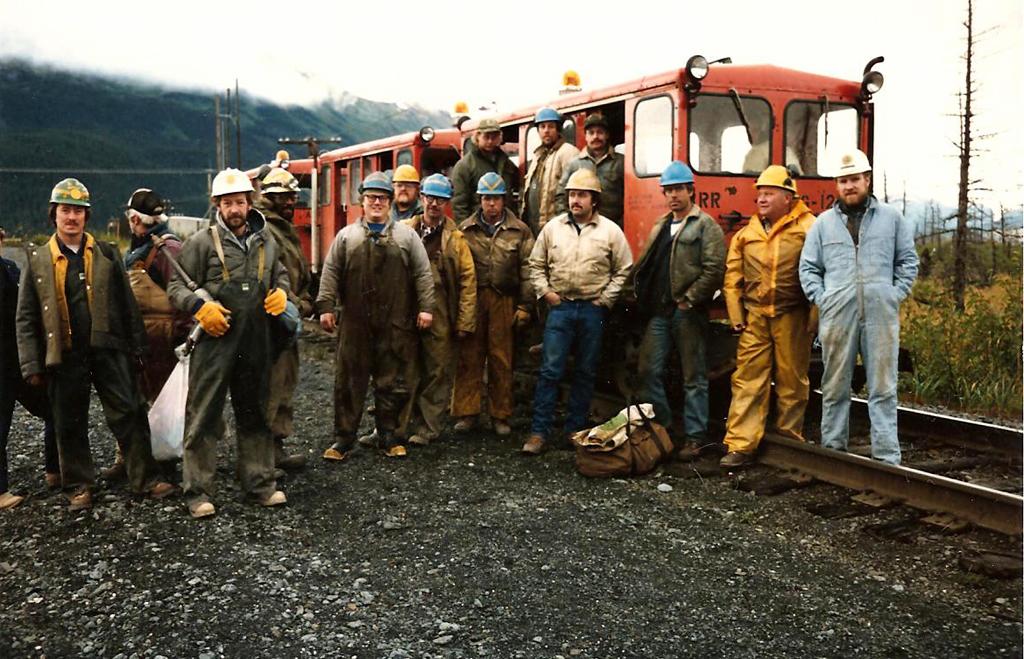Portraying the various types of work and special challenges that occur along the rails of the Alaska Railroad
|
Night Shift of the Tunnel Rehab Crew - In the late 1980's it became
obvious that something drastic had to be done with the track inside
the long Whittier Tunnel on the Door 2 end. The ballast section was
nothing but mud from all of the water seeping in and track surface
could not be maintained. Bid quotations were solicited from private
contractors and when the costs came back in, they were exorbitant.
The General Roadmaster at the time, Jim Carr, said "we can do
it ourselves for a lot less money." That began one of the biggest
internal track projects undertaken with internal forces on the Alaska
Railroad. Two separate crews worked 12 hour shifts for 7 days straight
and removed and replaced a mile of track from Door 2 back toward Whittier.
To start the project, the existing staggered joints were "squared
up." Then a large excavator was offloaded in the tunnel and used
to pick up the panels, put them on two track lowboys hooked to a locomotive
crane. The crane then took the panels out to a work pad built in Bear
Valley where the panels were unloaded for disassembly and new panels
built using new ties/plates and the existing rail. |
 |
Here is a second entry: |
 |
| By 1988, it had become obvious that the track inside the first mile of Door 2 of the Whittier Tunnel, desperately needed to be rehabbed. After putting out a RFP, the bids of trying to do it while still keeping the tunnel open for barge traffic, were extremely high. So the decision was made, that we would do it ourselves, by closing the tunnel to rail traffic, running two crews around the clock for 7 days straight. Due to the dedication and hard work of our employees, the job was completed ahead of time, under budget and IIRC...about 1/2 the cost of the lowest bid. Jim Carr (may he RIP) took the day shift and I was responsible for the night crew. We worked 12+ hour shifts, overlapping and not stopping until the new crew arrived at Door 2, so as to take advantage of every minute possible. We panelized (making the joints straight across from each other) the mile of track ahead of time, so as to be able to lift the track out in 39' panels with the largest excavator we could find, put them on two track lowboys, haul them out of the tunnel with a locomotive crane and then use the crane to handle the panels where the crew was dismantling the old and building new panels. A large area had been set up in Bear valley (with air dumps making a large pad/work area ahead of time) for the crews to dismantle the old panels, while building new ones using the same rail. Zipay Trucking had been contracted to use their fleet of dump trucks to back up into the tunnel, to where the hopper/conveyor (using a front end loader to load the hopper) was at the time, get their dump trucks loaded and haul butt to Door 2 to dump the old/fouled mud as fast as they dared to drive. Every function was like an assembly line and even Zipay's driver's were getting into the project, by backing up their dump's in the narrow tunnel, at a speed that amazed me. They would have a truck parked just clear of the door, so as soon as one truck cleared the portal, another one was already backing up to the conveyor at high speed. They were some pretty damned good dump truck drivers! Once we were down to bedrock after removing the old mud (it couldn't honestly be called "ballast"), we started laying the newly rebuilt panels...and just reversed the process. Here's a pic of part of the night crew at Portage, getting ready to head in and relieve the day shift and of newly built panels...ready to be laid. |
 |

